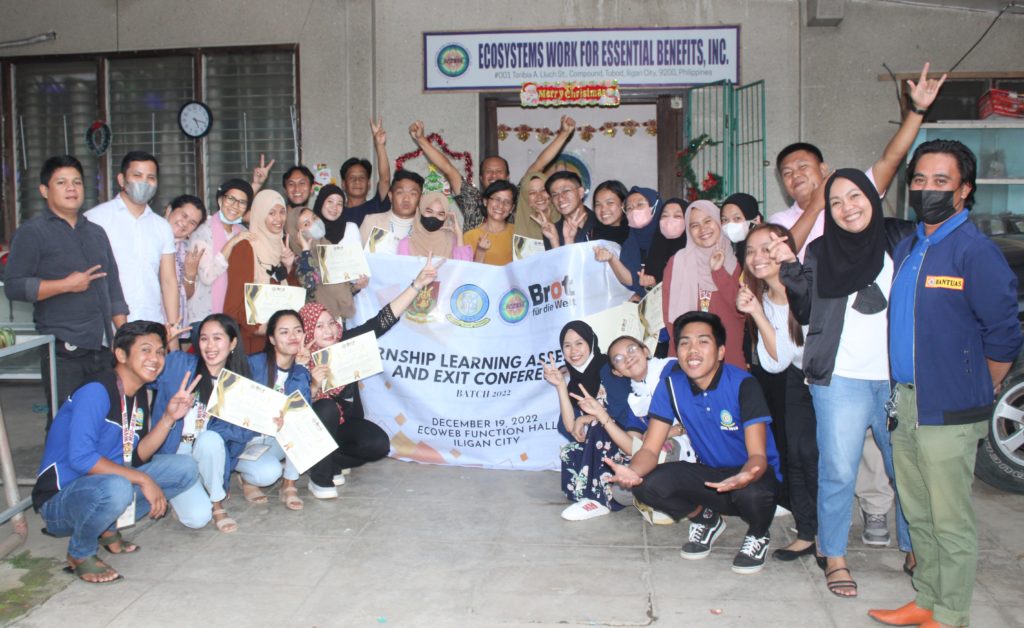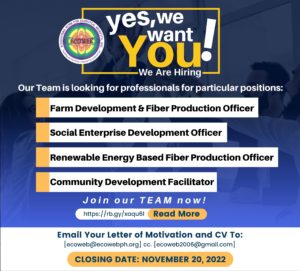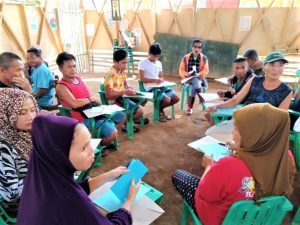Twenty college students of Mindanao State University (MSU), Marawi City enrolled in Sustainable Community Development completed their five months internship from August to December 2022 while immersed in the hinterland communities of Iligan city, Bayog of Zamboanga del Sur, and in Manticao, Misamis Oriental.
Under this internship, the students were distributed in the different areas in the hinterland communities and have stayed with foster families in coordination with the barangay officials and with the indigenous farmers association. They have specially completed the following:
- Actual Community Immersion
- Conduct Community Profiling activities and/or Sectoral Profiling
- Initially identify community and/or sectoral needs and problems
- Community Organizing Process and Mobilization of the different sectors
- Development of Project Proposal for the project idea desired by the people
- Carry out/implement small scale project
- Conduct of skills training to capacitate the members of the organization e.g. Organizational Analysis. Conduct of other capacity-building activities as needed by the organization.
Sustainable Community Development is a course offered in the Department of Public Administration of the College of Public Affairs of Mindanao State University-main campus (Marawi).
They were deployed in sitios Binasan and Sumagaysay, Rogongon; Barangays Mainit, Limunsudan, Kalilangan, and Panoroganan of Iligan; and in Depore and Conacon in Bayog Zamboanga del Sur but were later transferred to Upper Malubog of Naawan, Misamis Oriental.
Among the key results that the students are able to produce are the validated information of farmers’ production guilds; facilitation of sectoral or organizational action planning for production guilds; organizational development interventions for farmers; and, implementation of small scale project through people’s organization resource mobilization targeting on faith gardening training or disaster risk reduction for farm development, social enterprise management, abaca farm sustainability, investment planning, or project proposal development.
All of them completed the Registry System for Basic Sectors in Agriculture (RSBSA) survey and assisted in the facilitation of training, including establishment of farm nursery in the villages. They also assisted farmers in varied capacities in the conduct of local activities.
These students were under direct supervision of their respective professors and by ECOWEB staff under the Formation of Production Guild and Social Enterprises for Economic Development of Indigenous Communities (FPGSEEDIC).
During the Learning Review and Exit Conference for interns, the students presented their outputs, showed their videos and photos of their experiences, shared recommendations for FPGSEEDIC consideration, and their insights. Highlighted in their sharing were the challenges they had to endure during their immersion in terms of difficult road access to host communities and lack of water and basic facilities in most host communities. Their immersion also exposed them to the realities of poverty in the hinterlands. However, despite the difficulty in their living condition during the immersion, the students have shared inspiring insights telling how relevant their course is to help address the social challenges they have witnessed.
They shared empirical narratives highlighting the unique appreciation of cultural diversity because they are modeling a praxis where Maranao learners are immersing with indigenous peoples, whose culture and practices are different from their own. The Interns are mostly Maranaos and few Visayan speaking Christians.
Most of us are used to the narratives of the indigenous peoples living within the Bangsamoro but Maranaos immersing with the Higaonon, Subanen, and Kolibugan tribe is definitely a unique learning experience. The students noticed with sensitivity the indigenous people’s dances, the movements of their steps, the tools they used in farming, the rituals, and how their faith were entangled and integrated with nature.
ECOWEB’s executive director Regina Antequisa, a graduate also of MSU Marawi City, appreciated these youths as “change agents in the making.” She shared her journey as a development worker starting as well as an intern in an NGO where she got employed immediately after graduation.
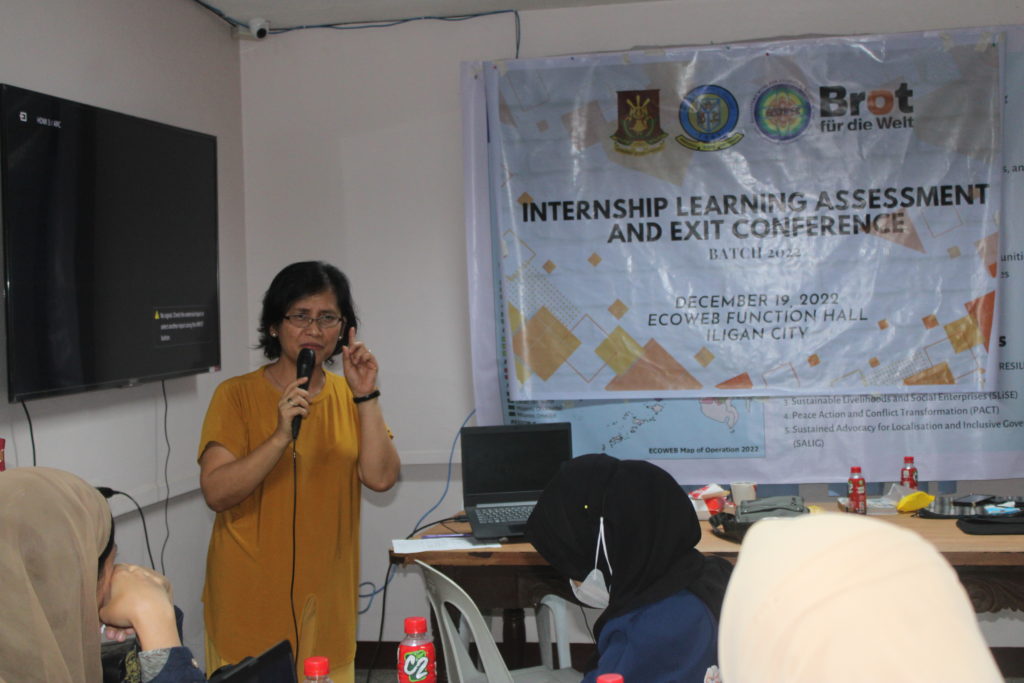
“Life is a choice and we make decisions to add meaning to our existence,” said Antequisa as she shared her insights from her three decades work journey relating to the developmental and humanitarian thrusts of ECOWEB.
Antequisa pointed that “even in survivor and community-led response (SCLR) in disaster management, the people led their own response appropriate to the level of their capacities to address needs.”
She also cited ECOWEB’s contribution in peace and conflict management with its partner communities in Lanao del Norte, including the hardship they’ve been through in areas where there used to be poor access roads.
Carino Antequisa, project development advisor of ECOWEB, likewise related his experience of participating in an immersion which helped transform his prejudices and biases against Bangsamoro being raised as Boholano. He also had challenges in that immersion when communities did not have sanitation facilities and potable water.
He amplified the relevance of advocating social enterprise to reverse the flow of money and make it favorable for hinterland farmers to address rural poverty and to transform the society’s ecosystem.
Professor Milly Joy C. Go, one of the professors from MSU CPA congratulated the students on the transformation they’ve undergone in the last five months while in the communities and considered the relevance of documentation in the curricular revision.
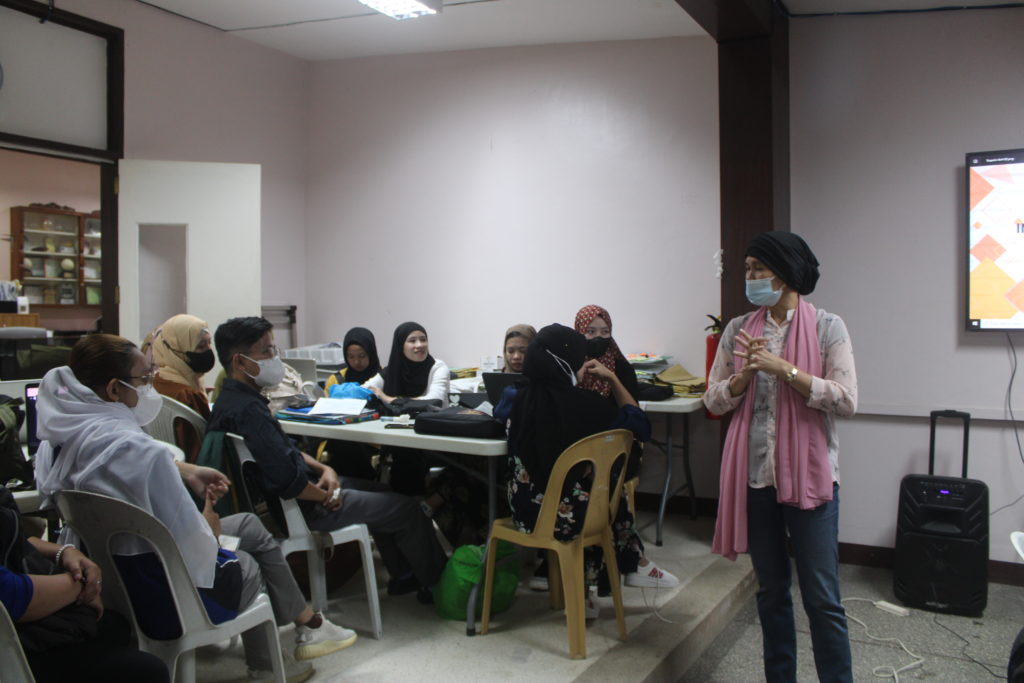
“We have learned so much from this intersection and have noted the feedback especially for the next batch of practicum students,” said Go who was grateful that students are able to articulate the feedback from the community.
All students were awarded with their certificates for the completion of this internship on December 19, 2022 at ECOWEB’s conference hall.
